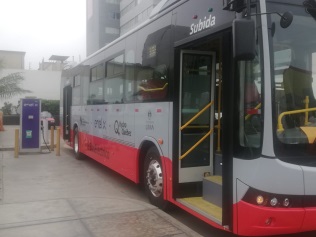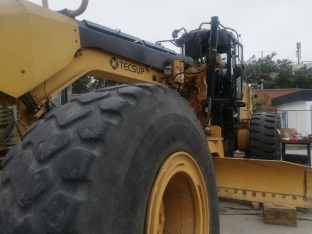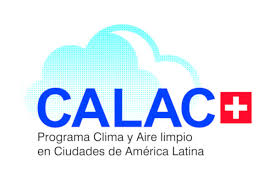CALCALAC+ aims at facilitating and providing technical support to authorities and stakeholders to address the air pollution and climate change problem, which is enhanced by urban transport and non-road mobile machinery. In Lima, it provides technical assistance and capacity building to public and private entities in the implementation of emission reduction measures, based on regional and global experiences.
BACKGROUND
Impact of transport on air quality and climate change:
- In Lima and Callao, 58% of PM2.5 emissions come from the transport sector.
- Land transport alone accounts for approximately 11% of the country’s GHG emissions.
Regulatory framework:
- Since 2018, both light and heavy-duty vehicles entering the country must comply with the Euro 4/IV standard, and over 90% of the country’s diesel demand is 50 ppm sulphur.
- In 2019, the Urban Transport Authority for Lima and Callao in charge of managing the transport system in this area started its activities.
Potential synergies:
- Timeline for the introduction of Euro 6/VI technologies.
- Lima and Callao Air Quality Improvement Plan, under the responsibility of the Multisectoral Clean Air Initiative Management Committee for Lima and Callao.
- GEF Project “Enhancing sustainability in e-mobility for low carbon urban transport and Extended Producer Responsibility (EPR) approach in batteries and vehicle components”.
PARTNERS
- Ministry of the Environment
- Ministry of Transport and Communications
- Ministry of Housing, Construction and Sanitation
- Urban Transport Authority for Lima and Callao
- Metropolitan Municipality of Lima
- Provincial Municipality of Callao
INTERVENTION
C1. Soot-free and low-carbon buses
- Migration to the Euro VI/6 technology standard Preparation of technical inputs: Comparative analysis of the Euro 5/VI standard with the Euro 6/VI standard, Cost-Benefit Analysis of the introduction of the Euro 6/VI emissions standard.
- Promotion of electric mobility: technical advice and assistance in the coordination of MINAM’s electric mobility initiative (US$2 million GEF project), support to local authorities for the introduction of electric buses in the urban transport system.

C2. Urban policy incubators for off-road machinery
- Elaboration of the First Emission Inventory for non-road mobile machinery (NRMM).
- Development of the NRMM roadmap to shape public policy on NRMM pollutant management.
- Elaboration of technical inputs for decision-making: cost-benefit analysis.

C3. Global knowledge management network
- Capacity building and training: Cost-Benefit Analysis Methodology of the Euro 6/VI standard, principles of Euro 6/VI technology, estimation of non-road mobile machinery inventories.
- On-site and online knowledge dissemination: First Latin American Conference on Nanoparticles, presentation of guidelines for managing air pollutants from non-road mobile machinery, webinar on NRMM policies.
- CALAC+ Expert Group: Measurement and control of nanoparticles.
